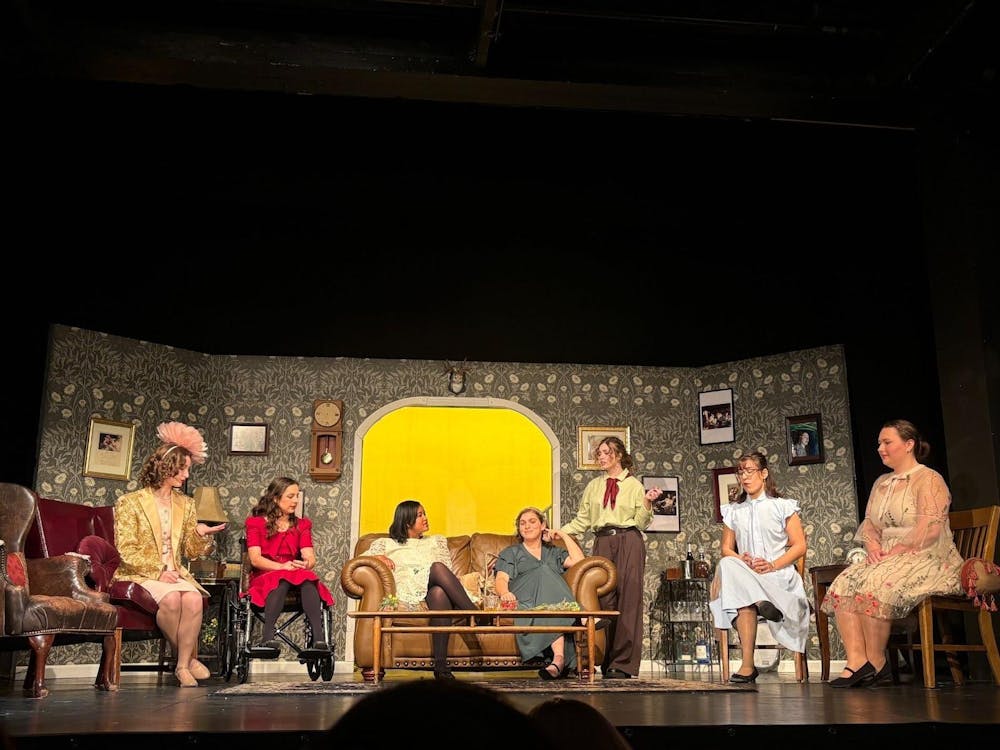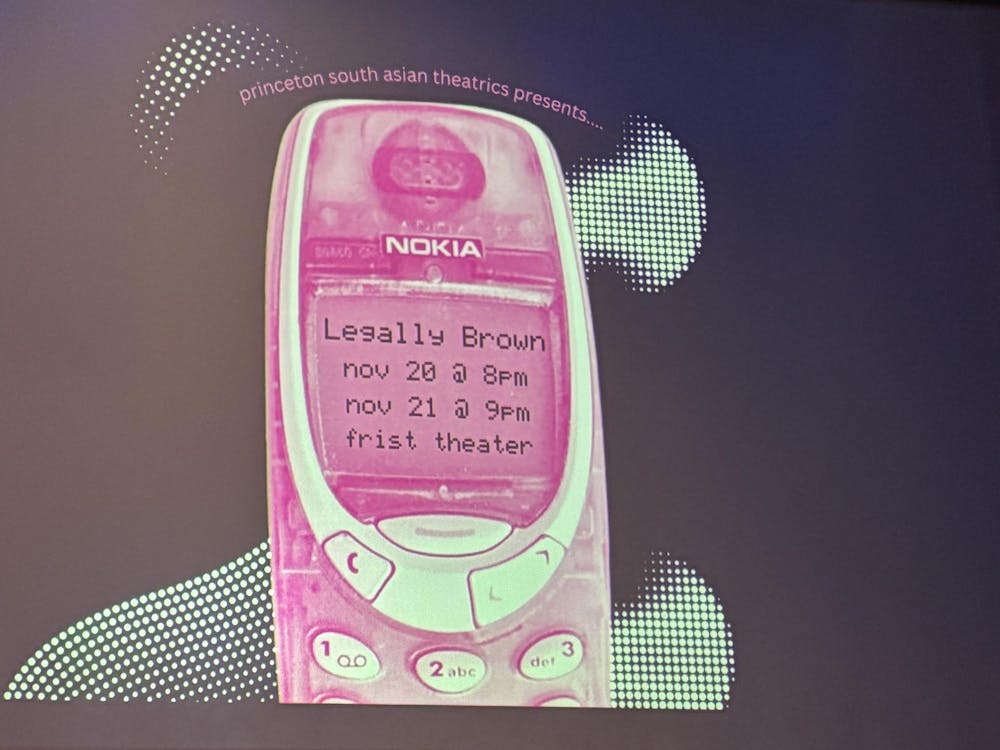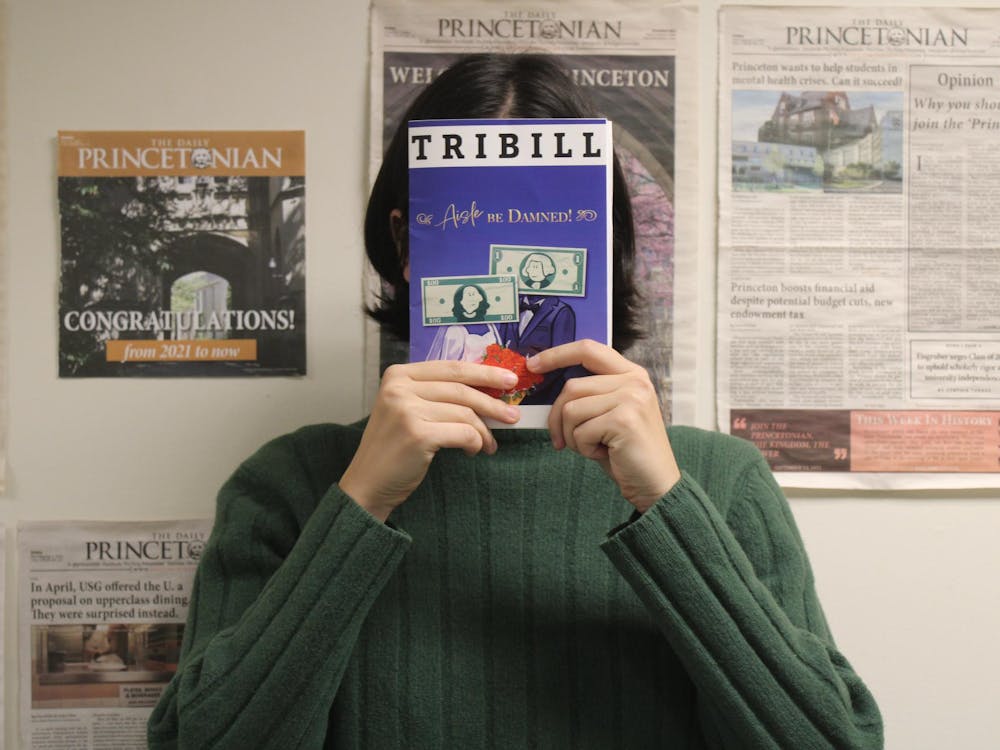In Arthur Miller’s “All My Sons,” an American businessman and father struggles with prioritizing large-scale morality over the narrow goal of making money for his immediate family. On Princeton’s campus, Theatre Intime is currently tackling this challenging piece of theater. This production continues into next weekend (Nov. 14-16) and is under the direction of Oge Ude '16. “All My Sons” centers on Joe Keller (Jordan Adelson ’14), a businessman whose factory was responsible for shipping defective airplane parts overseas, leading to the deaths of American pilots during World War II. Throughout the play, Joe Keller and his family must grapple with questions of practicality and morality. “All My Sons”tells the story of the crumbling of the small-town American dream. And although any production of “All My Sons” includes a certain apprehensiveness, evident from the beginning, the play’s power lies in that which begins as cheerful and idyllic turned dark and sour.
The set, designed by Matt Seely’s ’14 supports the creation of this initial scene of American utopia, with its cheery clapboard porch and wicker chair, all in front of a heavily saturated blue backdrop. A particularly interesting visual flourish is created by the newspapers that cover the stage right proscenium wall, which seem to suggest the impending upheaval of history and the scandals that threaten to shatter the idyllic scene. But the company of actors struggles to support the creation of this initial sense of togetherness andcontentment — they seem uncomfortable on the bright green lawn, and throughout the play, they fidget about trying to establish a collective rhythm.
“All My Sons” depends heavily on the creation of a warm family atmosphere in Act 1. Unless the Keller family appears to share an irresistible, easy charm at the beginning of the show, the audience members cannot appreciate why Joe would consider committing a terrible crime to preserve his family. Without this crucial sympathy for Joe, the play’s conflict is oversimplified and loses its theatrical punch. And in terms of this essential atmosphere, this production begins with a misstep. The opening scene is a movement sequence, backlit by the blue cyc wall and performed entirely in silhouette, in which Kate Keller (Uchechi Kalu ’14) wanders ghostlike to downstage center and gazes with prophetic gloom at the broken apple tree. There might as well be a sign reading “doom ahead” hovering above the stage for the entire subsequent performance, and the actors are faced with the struggle of finding an acting style to match the bleak mood. They respond by delivering each of their lines with heavy, ominous significance, as if every line were italicized. Unfortunately, because of this, I had difficulty buying into the early portrayal of the Keller family’s happiness, and, therefore, could not appreciate the dark and dramatic ending. Rather, I felt that the production as a whole lacked energy and emotional impact.
A few performances stood out in this production. Kalu achieves moments of excellence as Kate Keller, Joe’s stubborn, passionate wife who embodies both the practical and the spiritual over the course of the play. In particular, Kalu’s calls for her husband that constitute the final moments of the play were heartbreakingly stuttering, soft and genuine. Also, both Evan Coles ’15 and Nathalie Ellis-Einhorn ’16 represent funny, engaging, flawed sparks of real humanity as the flirtatious, smooth-operating, unfulfilled Dr. Jim Bayliss and his headstrong, somewhat bitter wife Sue Bayliss. Ellis-Einhorn and Coles paint a compelling picture of two married people who clumsily wrap their mutual resentment in pointed banter that’s just this side of scathing. At one point, Ellis-Einhorn wryly quips, “I should have been a man. People are always introducing me to beautiful women,” and the hurt and bitterness that lurks beneath her acerbic tone is captivating. In the second act, Charlie Baker ’17 gives a wonderful performance as World War II veteran George. However, it remains that none of these performances, no matter how earnest, successfully banish the production’s sluggish vibe.
“All My Sons”is Arthur Miller’s heartfelt condemnation of capitalist greed and its simultaneous lack of moral conscience. It can give an audience the opportunity to watch moral fortitude and lofty principle battle with practicality and self-preservation. For Miller, every man is answerable to the society in which he lives. And though this production had some lovely aspects, the sense of foreboding that pervaded the play from the very beginning thwarted the impact of the end.
2.5 out of 5 paws.
Pros: Some praiseworthy performances

Cons: Lack of energy and emotional impact








